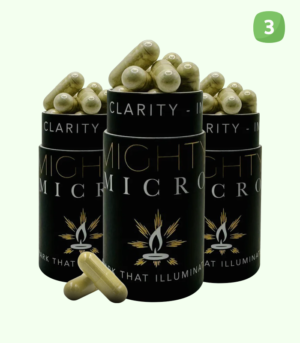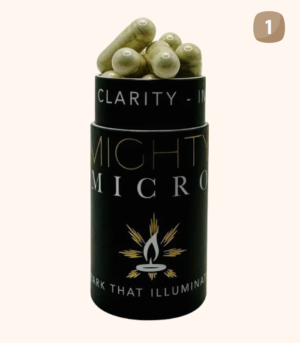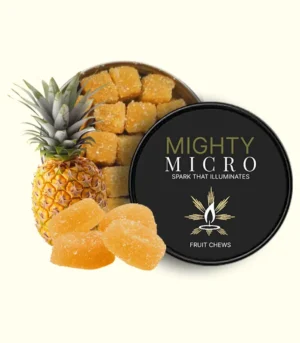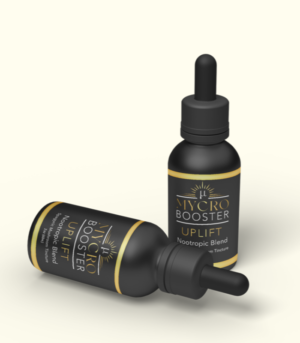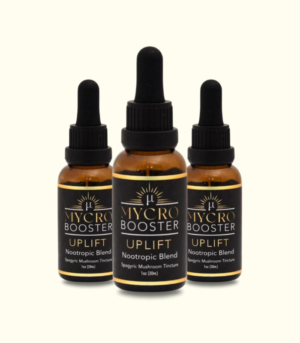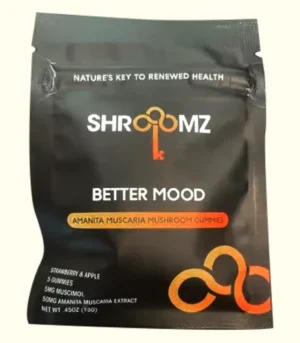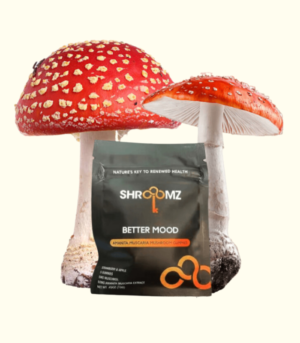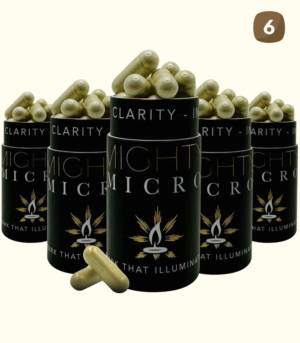In the pursuit of optimal well-being, individuals are constantly seeking new methods and practices to enhance their physical, mental, and emotional health. One emerging trend that has gained significant attention in recent years is microdosing. Microdosing involves consuming small, sub-perceptual doses of psychedelic substances, such as LSD or psilocybin mushrooms, with the aim of experiencing subtle therapeutic benefits without the hallucinogenic effects.
This article delves into the world of microdosing for well-being, exploring its potential benefits, risks, and considerations. From its historical roots to its modern-day resurgence, we will uncover the science, personal experiences, and expert insights surrounding this intriguing practice.
What are the Origins of Microdosing?
Microdosing has a long and fascinating history, with roots dating back to ancient civilizations. Indigenous cultures, such as the Mazatec tribe in Mexico, have used small doses of psychedelics for healing, spiritual exploration, and enhancing their connection with the natural world. However, it wasn’t until the 20th century that microdosing gained attention in the Western world.
The Swiss chemist Albert Hofmann, known for synthesizing LSD, conducted extensive research on the substance and experimented with microdosing himself. His findings paved the way for further exploration of the therapeutic potential of psychedelics.
What is the Science Behind Microdosing?
While microdosing is a practice that has gained popularity among individuals seeking alternative wellness approaches, the scientific understanding of its mechanisms and effects is still evolving. Research on microdosing remains limited, primarily due to legal restrictions and the stigma associated with psychedelics.
However, preliminary studies and anecdotal reports suggest that microdosing may influence serotonin receptors, promote neuroplasticity, and enhance communication between brain regions. These potential mechanisms provide a basis for the observed effects of improved mood, increased creativity, and enhanced cognitive function.
What are the Benefits of Microdosing for Well-Being?
Microdosing and Emotional Well-Being
One of the primary reasons individuals turn to microdosing is to improve their emotional well-being. Anecdotal evidence suggests that microdosing may alleviate symptoms of depression, anxiety, and mood disorders. By modulating serotonin levels and promoting neuroplasticity, microdosing could potentially rebalance emotional states and provide relief.
Microdosing and Cognitive Enhancement
Another area of interest in microdosing is its potential for cognitive enhancement. Proponents claim that microdosing can improve focus, creativity, problem-solving abilities, and overall cognitive function. While more research is needed to substantiate these claims, early findings and personal testimonies are encouraging.
Microdosing and Physical Health
Microdosing may also have implications for physical health. Some individuals have reported increased energy levels, improved athletic performance, and reduced pain and inflammation. However, it is crucial to note that these effects are largely based on anecdotal evidence, and more rigorous scientific studies are required to confirm these claims.
Microdosing and Productivity
Many proponents of microdosing believe that it can enhance productivity and work performance. By increasing focus, motivation, and creativity, microdosing may provide individuals with a cognitive edge. However, it is essential to strike a balance and ensure that microdosing does not lead to overstimulation or burnout.
How Can You Microdose Safely?
Before embarking on a microdosing journey, it is crucial to prioritize safety and responsible use. Here are some key considerations:
1. Seek Professional Guidance: Consulting a healthcare professional or therapist experienced in psychedelic therapy can provide valuable insights and guidance tailored to your specific needs.
2. Start Low and Go Slow: Begin with the smallest possible dose and gradually increase if necessary. This approach helps gauge individual sensitivity and ensures a personalized experience.
3. Obtain Reliable Sources: Ensure that the substances used for microdosing are obtained from reputable sources and tested for purity. Quality and consistency are vital for a safe and predictable experience.
4. Maintain a Journal: Keeping a journal allows you to track your experiences, doses, and any noticeable effects. This self-reflection aids in understanding personal patterns and optimizing the microdosing regimen.
5. Practice Integration: Integrating microdosing experiences into daily life is essential for deriving long-term benefits. Engage in mindfulness practices, healthy habits, and self-reflection to maximize the transformative potential.
What Are the Personal Stories and Experiences with Microdosing?
Numerous individuals have shared their personal experiences with microdosing, highlighting its potential benefits and transformative effects. While these anecdotes provide valuable insights, it is important to remember that individual experiences can vary significantly. What works for one person may not yield the same results for another.
What Potential Risks Should You Consider with Microdosing?
As with any therapeutic approach, microdosing comes with potential risks and considerations. While it is generally regarded as safe when practiced responsibly, there are factors to be mindful of, such as:
1. Legality: The legal status of psychedelics varies across jurisdictions. It is essential to understand and comply with the laws and regulations in your specific location.
2. Individual Sensitivity: Individuals may have varying sensitivities to psychedelic substances. It is crucial to be aware of personal reactions and adjust dosages accordingly.
3. Underlying Mental Health Conditions: Individuals with a history of mental health conditions should exercise caution when considering microdosing. Consulting a healthcare professional with expertise in psychedelic therapy is strongly recommended.
What Are the Legal and Ethical Considerations of Microdosing?
The legal and ethical landscape surrounding microdosing is complex and evolving. While psychedelic substances are classified as controlled substances in many countries, there is a growing movement advocating for their reevaluation and recognition of their potential therapeutic benefits. Stay informed about the legalities in your jurisdiction and engage in responsible and ethical practices.
How Does Microdosing Compare to Traditional Therapies?
Microdosing is often viewed as an alternative or complementary approach to traditional therapies. While conventional therapies have established frameworks and evidence-based protocols, microdosing offers a unique avenue for exploration and self-discovery. The choice between these approaches depends on individual preferences, circumstances, and therapeutic goals.
What Impact Does Microdosing Have on Cognitive Enhancement?
Microdosing has garnered attention for its potential to enhance cognitive function. While the evidence is primarily anecdotal, some individuals report increased focus, creativity, and problem-solving abilities. However, it is essential to approach cognitive enhancement with caution and balance, considering the unique effects and individual sensitivities.
How Might Microdosing Influence Creativity?
Creativity is a domain often associated with microdosing. Many artists, musicians, and writers have explored microdosing as a means to unlock new levels of creative inspiration and flow. While the connection between microdosing and creativity requires further scientific investigation, anecdotal evidence suggests potential benefits for expanding imaginative boundaries.
Buy Magic Mushroom Online
What Are the Emotional Well-Being Effects of Microdosing?
Emotional well-being is a central aspect of microdosing. Individuals report a range of positive emotional effects, including increased empathy, enhanced emotional regulation, and a greater sense of interconnectedness. However, it is important to approach microdosing as a complement to comprehensive emotional well-being practices and not as a standalone solution.
What Are the Potential Physical Health Benefits of Microdosing?
While the focus of microdosing discussions often centers around mental and emotional well-being, some individuals have reported physical health benefits. These include increased energy levels, reduced pain and inflammation, and improved overall vitality. Nevertheless, further research is needed to understand the mechanisms and validate these claims.
How Does Microdosing Affect Productivity?
Productivity is an area where microdosing has piqued interest. By enhancing focus, motivation, and creativity, microdosing may provide individuals with an edge in their work and personal endeavors. However, it is crucial to strike a balance and ensure that microdosing does not become a crutch or hinder overall well-being.
What Are the Effects of Combining Microdosing with Meditation?
Microdosing and meditation are often viewed as synergistic practices. Combining microdosing with mindfulness and meditation techniques may deepen introspection, heighten present-moment awareness, and facilitate profound self-discovery. However, individual preferences and sensitivities should be considered, and it is crucial to approach the combination with mindfulness and intention.
How Can Microdosing Impact Relationships?
Microdosing’s impact on relationships remains a topic of exploration. Some individuals have reported enhanced empathy, improved communication, and increased emotional connection with others while microdosing. However, it is essential to approach the effects on relationships with mindfulness, open communication, and mutual consent.
Can Microdosing Help with Stress Reduction?
Stress reduction is a sought-after benefit of microdosing. By influencing serotonin levels and promoting emotional regulation, microdosing may assist in managing stress and fostering resilience. However, it is crucial to incorporate comprehensive stress reduction strategies and not rely solely on microdosing as a solution.
How Does Microdosing Affect Sleep Optimization?
Sleep optimization is crucial for overall well-being. While some individuals have reported improved sleep quality and patterns through microdosing, others have experienced disruptions or changes. It is important to be attentive to individual responses and seek personalized approaches to sleep optimization alongside microdosing practices.
What Role Does Self-Reflection Play in Microdosing?
Microdosing can serve as a catalyst for self-reflection and introspection. By altering perception and promoting enhanced self-awareness, microdosing may facilitate deep insights, personal growth, and a greater understanding of one’s patterns, beliefs, and values. Engaging in intentional self-reflection practices alongside microdosing can amplify its transformative potential.
How Can Microdosing Contribute to Personal Growth?
Personal growth is a fundamental aspect of microdosing. Through increased self-awareness, expanded perspectives, and heightened introspection, microdosing offers an opportunity for individuals to embark on a journey of self-discovery and personal development. However, it is important to approach personal growth holistically, integrating microdosing with other transformative practices.
Conclusion
Microdosing for well-being is a rapidly growing field, capturing the interest of individuals seeking alternative paths to optimal living. While the science and understanding of microdosing are still evolving, early evidence and personal experiences suggest its potential for enhancing emotional well-being, cognitive function, and personal growth. However, responsible use, informed decision-making, and comprehensive self-care practices should be at the forefront of any microdosing journey. Unlock the transformative potential of microdosing, explore the boundaries of consciousness, and embark on a path of self-discovery. With careful consideration, professional guidance, and an open mind, microdosing can become a tool for exploring the realms of well-being and unlocking one’s full potential.
Can microdosing be addictive?
Microdosing substances, when used responsibly and as part of a structured approach, are generally considered non-addictive. Microdosing typically involves infrequent dosing schedules and sub-perceptual doses, reducing the risk of dependence or addictive behaviors.
Are there any known side effects of microdosing?
While microdosing is generally regarded as safe, it is not without potential side effects. Individuals may experience mild physical discomfort, changes in mood, altered perception, or increased sensitivity. These effects are typically temporary and subside as the substance leaves the system.
How often should one microdose?
The frequency of microdosing can vary among individuals. Common protocols include dosing every few days, once a week, or following a specific regimen, such as the Fadiman protocol. It is essential to experiment with dosing schedules and find what works best for individual needs and goals.
Is microdosing legal?
The legality of microdosing substances varies across jurisdictions. Psychedelics such as LSD and psilocybin mushrooms are generally classified as controlled substances in many countries. However, there are exceptions, such as specific medical or research contexts. It is important to familiarize oneself with local laws and regulations.
Can microdosing replace traditional therapy?
Microdosing should not be viewed as a replacement for traditional therapy. While it may offer unique insights and experiences, it is essential to approach microdosing as a complementary tool rather than a substitute for comprehensive therapeutic approaches. Consulting a healthcare professional or therapist is crucial for integrating microdosing with existing therapies.
Is microdosing suitable for everyone?
Microdosing may not be suitable for everyone. Individuals with underlying mental health conditions, a history of substance abuse, or certain medical conditions should exercise caution and consult with a healthcare professional before considering microdosing. Personal circumstances, preferences, and individual sensitivities should always be taken into account.


